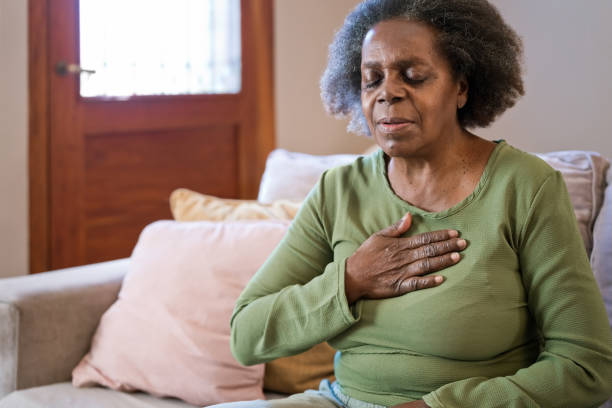“My name is Ruth, a 68-year-old grandmother. As the years have passed, I’ve noticed my heart sending subtle signals, moments of fluttering, a slight heaviness”.
Why do these changes come with age? Could they threaten your spiritual and physical heart?
The Quiet Heart Changes of Aging
Experts explain that as you get older, your heart can’t beat as fast during physical activity or times of stress, though your resting heart rate remains steady, a normal sign of aging. This shift worried Ruth, but it also drew her closer to Psalm 139:14: “I praise you because I am fearfully and wonderfully made; your works are wonderful, I know that full well.
Could understanding these changes help me care for the heart God gave me? ” she ponders
Sensing the Flutter
“Lately, I’ve experienced a fluttering in my chest, as if my heart skips or races briefly”, Ruth recalls. Health guidance assures that occasional extra or skipped heartbeats may occur more often with increased age and are not dangerous, yet frequent episodes might signal an arrhythmia needing attention. This revelation stirred her spirit, prompting her to seek peace in Isaiah 41:10: “So do not fear, for I am with you; do not be dismayed, for I am your God.” Ruth resolved to listen to her body and consult a doctor for clarity.
The Heart’s Silent Growth
Research reveals that over time, the chambers of your heart may increase in size, with thicker walls that might reduce capacity and raise the risk of atrial fibrillation—a rhythm issue common in older adults that can lead to stroke. The valves controlling the heart’s blood flow might stiffen too, potentially causing fluid buildup, a concern experts link to age-related risks.
Nurturing My Heart with Faith
Jeremiah 29:11 assures us: “For I know the plans I have for you… plans to prosper you and not to harm you.”
The PMC notes that changes in the heart and blood vessels that happen with age may increase a person’s risk of heart disease, but lifestyle changes can mitigate this.
“With prayer as my guide, I began gentle exercises, short walks, and adopted a diet rich in vegetables. I also embraced rest, trusting in Philippians 4:7: And the peace of God, which transcends all understanding, will guard your hearts and your minds.” Ruth adda. These steps brought calm to her soul and steadiness to her heart.
Next Steps
At Eyole Heart Nurture, we’re devoted to your spiritual and physical heart health. Take our free heart test today to start your path to wellness. Ruth’s story illustrates how faith and care can support an aging heart. Let’s explore how you can protect yours.
Frequently Asked Questions
- How does age contribute to heart disease?
Age stiffens arteries and slows heart response, increasing risk, as noted by the NIA. - At what age do heart problems start?
They can begin in the 50s or 60s, especially with age-related changes, per PMC. - What age range is most at risk for heart disease?
Those over 65 face the highest risk due to natural heart changes, according to the NIA. - Why does age increase the risk of disease?
Aging weakens heart efficiency and vessel flexibility, raising heart disease likelihood (PMC). - What are the two common age-related changes in the heart?
Thicker heart walls and stiffer valves are typical, as highlighted by the NIA. - Can exercise prevent heart disease?
Yes, regular activity strengthens the heart and lowers risk, supported by PMC findings. - Why are younger people getting heart disease?
Lifestyle factors like poor diet can accelerate risk, though age remains a key factor (NIA). - What age group has the most heart attacks?
People over 65 are most affected, due to cumulative heart changes, per PMC. - Can a weak heart become strong again?
Yes, with exercise and healthy habits, a weak heart can improve, as the NIA suggests. - What is the relationship between age and heart disease?
Age heightens risk by accelerating heart and vessel wear, a concern addressed by PMC.





